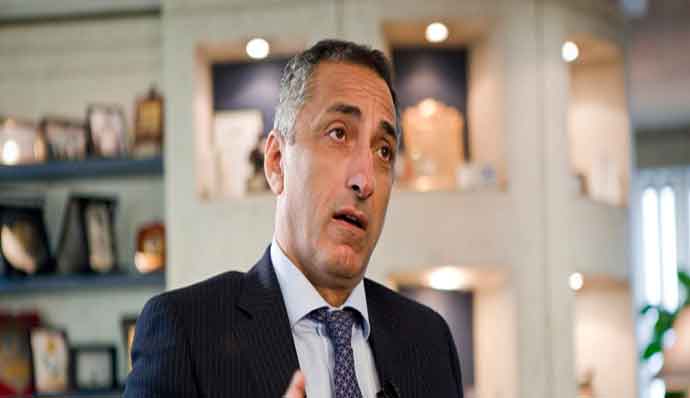Investments in Egyptian treasury bills and bonds increased by $500m since the Egyptian pound was devalued almost two weeks ago, said the governor of Central Bank of Egypt. Speaking in a televised interview on Saturday evening, Governor Tarek Amer said he expects to see another $15 billion to $20 billion of foreign investments in Egyptian government treasury bills and bonds by the end of this year. Yields on Egypt’s treasury bills, and on five-year and ten-year treasury bonds, rose dramatically after the central bank hiked interest rates by 1.5 percent to combat inflation in the wake of a sharp devaluation of the pound this month.
“It’s a difficult decision, because the [interest rate] was already high,” said Amer. The bank raised the overnight deposit rate to 10.75 per cent, the overnight lending rate to 11.75 per cent, and the rate of the CBE’s main operation rate to 11.25 per cent.
The rate hike came after the pound, which the CBE had propped up against the dollar since 2011, was allowed to drop by 14.5 per cent on March 14, in a move hailed by international credit rating agencies as credit positive. Since the devaluation, the largest two Egyptian public lenders started offering dollar call options to foreign investors buying Egyptian T-bills to hedge against foreign exchange risk, in an effort to attract foreigners back to Egypt’s debt market.
The majority of Egyptian T-bills are held by Egyptian banks, with foreign investors having sold billions worth of notes since the country’s 2011 uprising which toppled longtime autocrat Hosni Mubarak.
Egypt’s recently launched dollar-denominated high-yield “belady” certificates, aimed at Egyptians living abroad, have only attracted around $150m, said Amer.
The CBE governor said he expected investment funds to invest “at least $5bn” in Egypt “within 3 to 4 months.”
The funds are sorely needed at a time when Egypt’s inflows of foreign currency from tourism have plumetted since the deadly metrojet airliner crash over Sinai last October, while export revenues and FDI have stagnated, partly due to an overvalued pound. The regulator has kept the foreign currency reserves level stable in recent months at around $16.5bn through “swap agreements and loans from international banks” as well as U.S. dollar deposits from local banks, said Amer. The sum is enough to cover a little over three months worth of Egypt’s strategic imports.
Currency crunch
But the CBE governor denied that Egypt is experiencing a foreign currency crunch, blaming the country’s currency black market instead.
“There is no currency crisis, we have a crisis in the regulation of the currency market,” said Amer, who also said that the CBE had pumped $22 billion into the market to clear import backlogs since he took the helm last November. “We have alternative plans for the definitive regulation of this market in the upcoming months,” said Amer, declining to reveal details, but adding that the central bank would seek harsher penalties for black market traders. The central bank will soon make hard currency available for foreign companies to repatriate their profits, said Amer. “We will focus on them in the upcoming period to facilitate distribution of profits,” he said.
General Motors halted operations in Egypt for a week last February, citing an inability to source dollars needed to pay for imported production materials held at customs.


